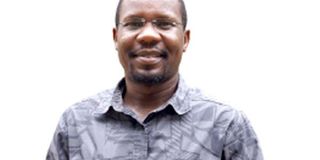If you can’t deliver the goods at 65, no way you’ll do it at 85

Bernard Tabaire
What you need to know:
A key Tanzanian opposition figure, Mr Tundu Lissu, was shot and wounded in the administrative capital of Dodoma on Thursday.
There are unsettling stirrings unfolding in East Africa’s Big Three. Let’s go by size because size matters.
A key Tanzanian opposition figure, Mr Tundu Lissu, was shot and wounded in the administrative capital of Dodoma on Thursday. An implacable critic of president John Magufuli, Mr Lissu was the whip of Chadema, the main opposition party.
Mr Magufuli is a hard-charging populist who came in to change his country’s public sector culture of incompetence and corruption. His early directives were many and varied. To cut wasteful spending, he cancelled lunch or lunch allowances for government workers directing that mid-morning meetings end by 12:30pm and attendees go find their own lunch as they would on any ordinary day. Large government delegations on foreign trips were out. Meanwhile he was firing on the spot big public servants all over the place. (Idi Amin would call that retiring them in public interest).
The common Tanzanian wananchi loved their president’s every move (they still do, I am told). Social media, especially in the region, could not have enough of this new no-nonsense leader. The hashtag #WhatWouldMagufuliDo lionised him.
The Dar es Salaam establishment, used to business as usual, was aghast. Ad hoc was in. But what was this man’s plan for transformation of the entire bureaucracy? And those bizarre firings?
I was in and out of Dar quite a bit in the middle of last year. President Magufuli was not yet a year in office. Those I interacted with often — like one retired journalist and one well heeled economist-cum-activist — spoke of their new president’s incipient authoritarianism. He was brooking no challenge to his authority, not even in parliament where he sought to beat the opposition into submission.
Among those to stand out in pushing back was prominent lawyer and politician Lissu. He got detained many times on charges of incitement. He was held in July for branding Mr Magufuli a dictator.
The said dictator issued a statement on Twitter following the attack: “I have been saddened by reports of the shooting of Hon Tundu Lissu. I pray for his quick recovery.
“Law enforcement agencies should hunt down all those involved in this barbaric act and bring them to justice.”
We sure hope for justice for Mr Lissu. Suspicions, however, linger. According to media reports, Amnesty International said in a statement: “The authorities must take steps to reassure Tanzanians and the world that this shooting was not politically motivated.”
There is only one way to read this statement. Which is that AI’s presumption is that the attack on Mr Lissu was politically motivated until the Tanzanian government proves otherwise. Mr Magufuli is not off the hook.
Across the line in Kenya, where Mr Lissu is being treated in Nairobi, the fallout continues from the Supreme Court’s annulment of the re-election of president Uhuru Kenyatta.
The electoral body, IEBC, faulted by the court, is split. The commissioners are quarrelling with statements issued on behalf of IEBC and statements disowned.
The more they fight, the less time they will have to organise an election on October 17 that meets the perfection test set by four justices of the Supreme Court. Show me a loser on that date and I will someone who will rush to Chief Justice David Maraga’s court.
Over here at home, more than 20 young women have been killed since May in Wakiso District. According to police, there is a pattern to the killings. Maybe if we had kept the LC I system functional like it was in the ’90s, some of these lives would have been saved. We dropped a good thing, and now we are paying with our lives.
That is what happens when instead of focussing on actually governing the country — ensuring safety of lives and property of Ugandans — our key leaders focus on holding on to power because it satisfies some inner need.
Now even the Prime Minister, a man whose office should be fretting over how to ensure a clean and competent bureaucracy, has time to endorse the campaign to remove the presidential age limit clause from the Constitution.
“I see nothing that provides a scientific or rational reason that somebody who is above 75 years cannot be president,” Prime Minister Ruhakana Rugunda told The Observer.
Except that one is not a president for the sake, but rather, as Dr Rugunda says in the same newspaper report, to “advance the socio-economic development” of the country.
Question is: If someone has failed to deliver anything transformative at 60, at 70, how on earth does the good medical doctor think that the same person will deliver miracles at 90?
What is Mr Robert Mugabe delivering down there in Zimbabwe at 93?
Across East Africa, there is a conversation to be had and heard about quality government and what that actually means. For now, it does no harm to do the hard work of pushing back against our ‘elected’ power hungry autocrats, just like Mr Tundu Lissu has been doing.
Mr Tabaire is the co-founder and director of programmes at African Centre for Media Excellence in Kampala. [email protected]
Twitter:@btabaire




